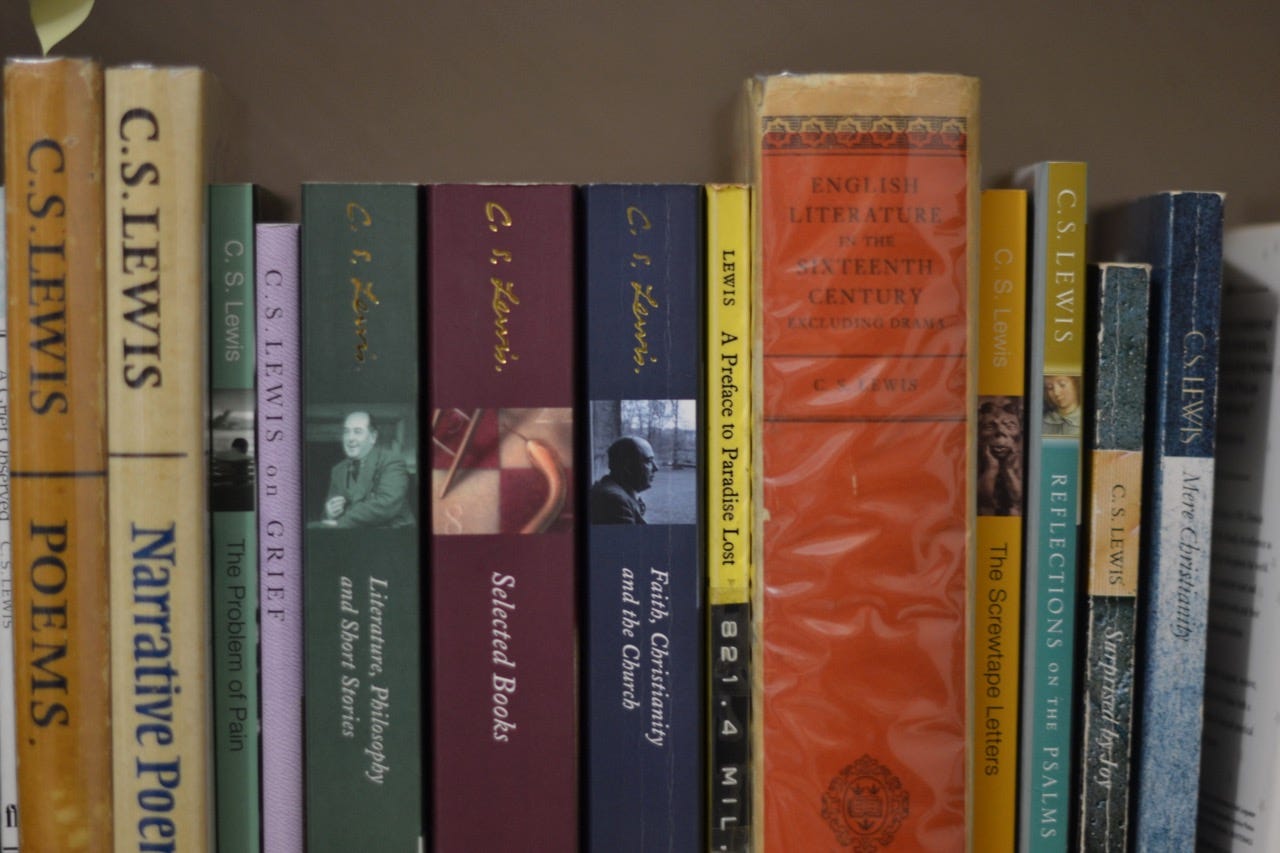A few thoughts on CS Lewis's biography
It has been a long time between visits. You could perhaps blame that on the fact that I had three out of four weekends away through February, so there was extra pressure on the weeks, though that probably doesn’t altogether explain it. I am not sure I have a fully valid reason for why blogging capacity has plummeted over the years. I finished C.S. Lewis – A Biography by A.N. Wilson a couple of weeks ago. I really enjoyed this book and found it hard to stop reading. The chapter called ‘Redemption by Parricide’ was especially fascinating to me and there was so much material to ponder in this volume I'd hardly know where to begin. One thing I found a little jarring is that while the author is clearly a superiorly intelligent and broadly-read man and gifted writer he was quite sneering and condescending in his criticism of Lewis in places. Parts of this book so made me wince that they called into question the whole genre of biography. To consider that being famous for you talent in one particular niche rends you vulnerable to such scoffing and scathing objection for all the times and places where your talent seemingly falls short, and your entire personal life free to such scrutiny and judgment by all and sundry, is in many ways disturbing. Show me the man who produced such a vast volume of work in which every sentence said or written or broadcast was beyond fault. And it’s no secret that I am a fan of the writing of Lewis, though I don’t think I would have been in danger of idolising his person, and knew enough of his story to suspect the flaws, but I find no value in the speculation into unconfirmed indiscretions (clearly the nature of his relationships with two married women is questionable, but there are no real extant answers). The author is enthusiastic where Lewis is deemed to have done well and earned his praise though, which more or less compensates. And there is nothing in the book that would surprise those able to acknowledge that Lewis was a fallen human (it would seem there are those out there who find that difficult however). He stands on the shoulders of a long line-up of biblical figures who were used by God despite, and maybe even because of, all their luggage and failings. What is apparent and curious though is the vast swathes of his personal story that Lewis himself chose to omit from Surprised by Joy. The other dimensions in his story I read here actually significantly tugged on my sympathies, as his rearing so traumatised him and suppressed the likelihood of a functional emotional development that the height to which he did rise above it is rather admirable. What I also found interesting to note is that, by any of this day's world's standards, Lewis lived an uneventful life. He didn't travel much at all or cram his life with gathering experiences (though you could say the war was one hell of an experience). What he mostly did was read books and talk and write about books. But how rich his life was in any case. I’m actually now reading The Four Loves, as it is referenced often in the biography and it’s been a long while since I read it. I have a frightening capacity to forget what exactly was in many of the books I know I’ve read some years later. I would like to read some of his less-familiar academic writing also, as part of my self-education syllabus. In closing I will leave you with a little piece of the writing for which we love Lewis, from The Four Loves:
Affection almost slinks or seeps through our lives. It lives in humble, un-dress, private things: soft slippers, old clothes, old jokes, the thump of a sleepy dog’s tail on the kitchen floor, the sound of a sewing machine, a golliwog left on the lawn.


